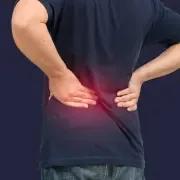Arthritis Care: Managing Joint Pain Effectively
In This Article
Arthritis Care: Managing Joint Pain Effectively
Parvathy
Updated on December 18, 2024
Medically verified by Dr. Arya
Fact checked by Dr. Fazeela

Orthopaedics
10 minutes
If you’re not even able to do simple things like climb stairs, pick up a jug or type without any assistance, it may be a cause for concern.
Have you ever thought about how you will deal with a terrific situation like this??
Certain Conditions like Arthritis often prevent our joints from performing even simple movements.
Concerned about arthritis and ways to manage it ?
Karetrip is here to support you throughout your journey to combat Arthritis.
In this blog by Karetrip, we will examine various forms of arthritis and the symptoms associated with it .
We will also discuss certain strategies that will help one to manage joint pain.
Forms of Arthritis
1. Osteoarthritis
It is the most typical Form of Arthritis . As Cartilages in joints deteriorate people develop osteoarthritis.
Symptoms
-
Joint stiffness
-
Crackling sound during movement of joints
-
Pain surrounding the area of joint
Factors leading to Osteoarthritis
-
Heredity: Our Genetics has a huge role in inheriting the condition of osteoarthritis
-
Gender: Women are more prone to condition like osteoarthritis
-
Age: As age advances, one is likely to develop this condition.
2. Rheumatoid arthritis
It is an autoimmune condition which is often long lasting .It results in intense pain around the joints. Inflammation also occurs as a part of this condition.
Symptom
-
Intense Pain especially region surrounding a joint
-
Joint stiffness
-
Inability to freely move wrists, knees and fingers.
Factors leading to Rheumatoid Arthritis
-
Women are more prone to develop this condition
-
Genetics is instrumental in developing this condition.
3. Psoriatic Arthritis
This is a type of arthritis that usually affects a person diagnosed with psoriasis.
Symptoms
-
Discolouration near the joints that are affected
-
Extreme fatigue
-
Swelling in affected area
Factors leading to Psoriatic Arthritis
-
Having Psoriasis : About 30 % of people affected with psoriasis are more likely to develop this form of arthritis.
-
Age : As individuals cross 30s they are more likely to develop this condition.
-
Smoking : Regular smokers are at high risk of developing this form of arthritis.
3. Juvenile Arthritis
Juvenile Arthritis is a type of arthritis which develops in children . It can affect any joint in a child. But it affects mostly the hands, feet, and knees. In certain cases the internal organs of a child are also affected.
Symptoms
-
Intense Weight Loss
-
Recurrent Fever
-
Skin Rash
-
Inflammation and swelling
Factors leading to Juvenile Arthritis
- It usually develops due to a combination of Environmental factors and heredity.
Reasons for Arthritis
Arthritis typically comes about for several reasons. Some of common causes are
-
Age: People are more likely to get arthritis as age advances. Osteoarthritis is the mostly visible in old people
-
Genetics: Our heredity has a vital role in developing arthritis.
-
Patients with a prior history: Individuals with prior history are at more risk of developing arthritis
-
Obesity: Obesity is a major reason for rheumatoid arthritis.
-
Gender: In general, women have a higher risk of developing arthritis than men (except for rheumatoid arthritis)
 6 min read
6 min readTop Orthopaedic Hospitals In Bangalore For Bone And Joint Care
 10 min read
10 min readImpact of Untreated Back Problems
 10 min read
10 min readNon-Surgical Treatments for Back Pain
Get a Callback Now
Diagnosis of Arthritis
-
Know the patient: It is really important to know about your symptoms, and medical history to diagnose the disease. Family history of arthritis should also be considered before making an accurate diagnosis of the disease.
-
Physical Examination: Usually, a doctor performs a physical examination to accurately identify the condition.
-
Imaging Tests: Doctors often prescribe imaging tests such as X rays, MRI, or CT to diagnose arthritis. These tests are also used to analyse intensity of conditions.
-
Blood Tests: Doctors recommend blood tests to diagnose symptoms of rheumatoid arthritis.The presence of rheumatoid arthritis is indicated by high levels of CRP and ESR in the blood.
-
Joint Fluid Analysis: To check for infection, sometimes fluid is drawn from the joint.
Managing Arthritis Effectively
To manage disease like arthritis several approaches are employed. Let's delve into some of them
1. Medical Treatment
Acetaminophen and nonsteroidal anti-inflammatory drugs (NSAIDs) like ibuprofen and naproxen can be used to manage this situation. These medications help to alleviate pain.
Drugs like prednisone have severe side effects. But they can be used to reduce inflammation.
DMARDs like methotrexate or sulfasalazine can be used to treat autoimmune conditions. They help in slow disease progression and also reduce joint damage.
2. Lifestyle Modifications
-
Adopting Regular Exercise : It is possible to prevent arthritis by sticking on to a regular fitness routine. Swimming, cycling or walking helps to increase the flexibility of joints. It also increases the strength of the muscles around the joints . This in turn helps stabilize and relieve pain.
-
Proper Weight Management: Maintaining a healthy weight is really crucial. Keep a track of your calories. Adopt a balanced diet.
-
Diet: Your diet has a huge impact upon your body. Cut down inflammatory foods like red meats, refined carbohydrates, trans fat etc. Focus more on fruits, vegetables, omega 3 fatty acids.
-
Rest: Adequate rest is mandatory to manage these conditions
-
Use Braces : Try to use joint protection techniques such as splints or braces when you need them.
3. Surgical Options
Surgery may be considered an option only if other treatments are not effective. In surgical techniques like Joint Replacement a damaged joint is replaced with an artificial one. Usually joint replacements are performed in areas like Hip, knee and shoulder joints.
Arthritis is a condition with which one has to battle throughout their life.
Several reasons like age,family history, genetics, gender can lead to such conditions.
There are various types of arthritis and symptoms and its contradictions are unique to each type.
Only through continuous monitoring and adopting certain management strategies one can keep it at a bay.
Such strategies may help those who suffer from the pain to reduce it,improve mobility and increase quality of life.
Medical treatment, making changes to your lifestyle, physical therapy and even surgery can all improve your condition a great deal.
Having the right care from your doctor will help you find a way of dealing with joint pain that works for you and knowing what type of arthritis you have.
Source Links
Arthritis Foundation
Continental Hospitals


